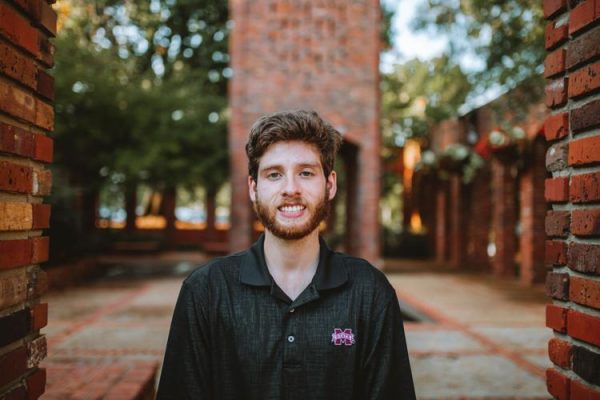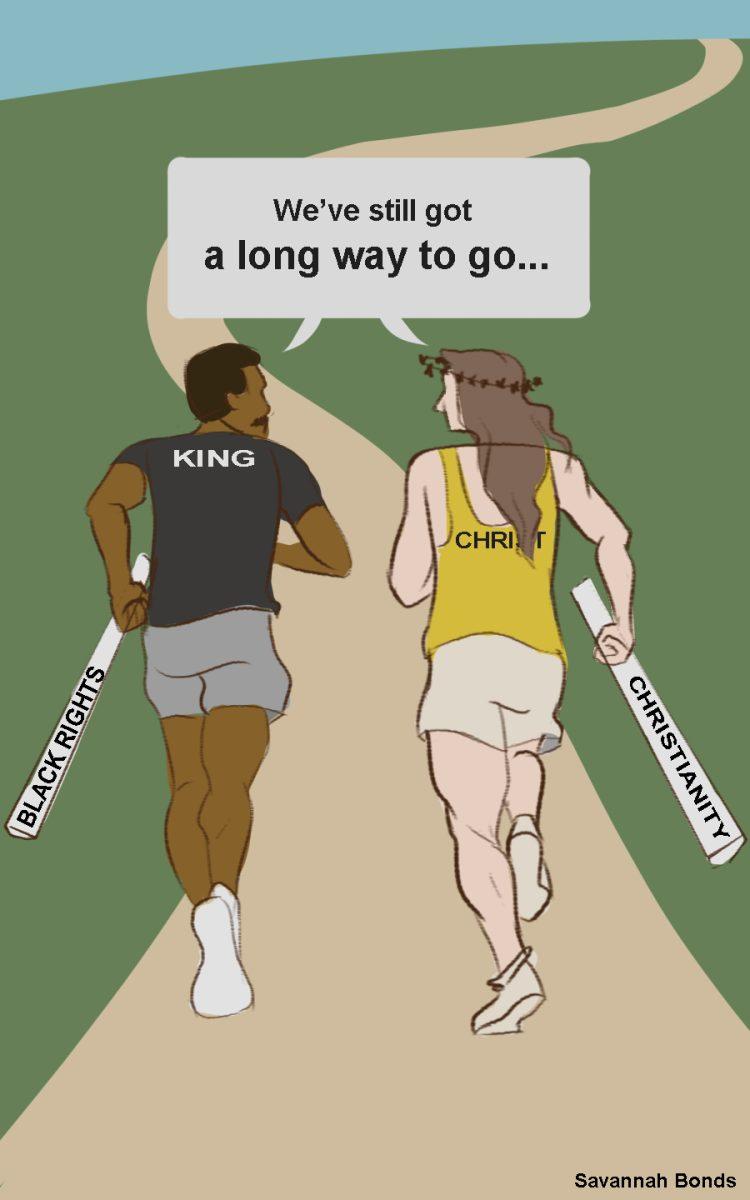It is hard to write a piece on the events we face today, for it is hard to express and distill such intensity into a concise opinion article. I could write an entire opinion article on the fact there have been over 100 incidents of police “press freedom violations” since May 28, at least 90 of which are attacks on press members, as reported by BBC, or I could write an entire article about how Americans can empathize with rioters’ anger while simultaneously admitting rioting is bad political praxis and hurts the protests. I could write an article about how much we have normalized police and state violence to the point where we give police the benefit of the doubt but always cast distrust on protestors’ motives.
Ultimately, it seems like any article I write would be too little, but I cannot, in good conscience, be the Editor-in-Chief of The Reflector and not speak in some small way to the horrific injustice which our country has let fester. So, I write this because I want something I do have experience with, my faith, to speak to said injustice.
Amid this suffering, Christians have just celebrated Pentecost, one of the holiest days in the liturgical calendar. It is the day Christians commemorate the coming of the Holy Spirit upon the first members of the Christian community, and it is the day when the tools were given to the Church to begin their task of bettering the world. This is not how things always went. Many of the detours from this mission led to some of the worst dead ends imaginable, the death of innocents and rampant abuse.
I will not get into the argument of “No True Christian” because, unfortunately, Christianity as a cultural force cannot be separated from those we think are not “true Christians.” Christianity, in the cultural subconscious, cannot be extricated from witch hunts and chattel slavery because it was used to justify both. We can go back and forth on why that was a misuse of Scripture and so forth, but that will not change the material reality of those killed by such misuses.
No, what is a better use of time is the recognition of those realities and the advocacy for better ones. What is a better use of our time is to reflect on the injustices of the world and to rectify the discrepancies between the City of God and the Earthly City, to use St. Augustine’s terms. I hate to break it to you, but we have quite a chasm between the two.
On May 25, George Floyd was killed by a police officer suffocating him with his knee, and three police officers share the culpability by their refusal to stop their fellow officer from doing such. The first officer has now been charged with second-degree murder, though it was originally third-degree, and the other three officers now face charges, according to Lorenzo Reyes with USA Today. Floyd’s killing comes on the heels of a what I would term the lynching of Ahmaud Arbery in February which only came to the public’s attention months after its occurrence because a video came forward of the murder. Only after this video surfaced were the two attackers of Arbery arrested, according to Richard Fausset with the New York Times.
These are just two of the many killings of black Americans in recent years, and if one wanted, they could travel back in time to revisit the countless deaths caused by racist systemic oppression of black Americans. Here in the South, the history of racial violence hits close to home because it is home. Safe to say, racial discrimination is one of the longest-lasting tensions in the U.S., and it continues to this day. Radley Balko with the Washington Post has an incredible compilation of statistics, from the disproportionate striking of black people from juries to the fact black people are given longer sentences for the same crimes as white people, which shows the continued systemic issues of racial discrimination in America.
The first step is recognition. Christians need to wake up and realize the church is on fire, and Americans need to wake up and realize the fires they see on TV are indicative of a boiling pot beneath the surface of the status quo. I do not think violence is the answer, in any case, and that goes for state violence by law enforcement or violence by the citizenry. My religious beliefs inform me the sword is always double-edged.
Yet, like Martin Luther King Jr. wisely knew, riots point toward underlying issues, and those issues must be resolved if we truly wish violence to stop. Rioting does not solve the issue, and in my estimation, it only hurts the causes of the peaceful protesters by the American public’s inevitable association between the peaceful protestors and the violent ones. Even so, recognizing the coals, lighter fluid and lighter of this combustion were well laid out before the death of George Floyd is important to one’s understanding of why there is a fire burning at all.
Hence, education is the second step. Learn the underlying issues. Look at the statistics. Realize white America is not some standardized experience of America. I am white, so my lecture may not be worth much to some people. I understand that. However, I have had to come to grips with the indoctrination of such 1980s coding as “urban crime” or blaming some abstract cultural issue, as if white power structures have not directly led to the continued and disproportionate poverty of black Americans. In the terms Former President Lyndon B. Johnson used to describe what America should have rectified by now, the majority of Americans crippled a minority of Americans for centuries and expected said minority to run the race all the same.
Thus, the final step is action. Action does not always mean physically protesting. It can mean donation and advocacy. It can mean voting and organizing. It can mean writing and speaking.
I bring up Christianity at the beginning of this article to make an analogy. In the same way King or Dorothy Day pointed toward the chasm between Christian ideals and Christian praxis, Frederick Douglass and W.E.B. Du Bois pointed toward the chasm between American ideals and American praxis. People justified slavery with the Constitution and believed slavery was fundamental to the American way of life. Vice President of the Confederacy Alexander Stephens infamously said slavery was a “cornerstone,” a foundational natural order which the South must fight to maintain.
Americans cannot point toward racist Americans and say, “Well, they are not true Americans,” and be done with it, just as Christians cannot point at bad Christians and claim non-allegiance. The racist ones call themselves American, too, and have been calling themselves that since the country’s inception. Sorry to say, they are part of the material reality of America.
Do I think there is a right way to be Christian and a right way to be American? Yes, I completely do. First and foremost, racism is a big no-no on both lists. However, I recognize, from the outside looking in, both names, Christian and American, are stained by blood and horror.
Until we come to grips with that, we are not getting anywhere. There is no progress if we assume Former President Barack Obama’s election brought about a post-racial America, and King’s dream has been fully achieved. King’s dream has been as much achieved as the City of God has been brought to fulfillment on Earth, which is to say we fall incredibly short.
Categories:
Floyd’s death shows the ideal is not here
About the Contributor

Dylan Bufkin, Former Editor-in-Chief
Dylan Bufkin served as the Editor-in-Chief of The Reflector from 2020 to 2021.
He also served as the Opinion Editor from 2019 to 2020.
0
Donate to The Reflector
Your donation will support the student journalists of Mississippi State University. Your contribution will allow us to purchase equipment and cover our annual website hosting costs.
More to Discover







